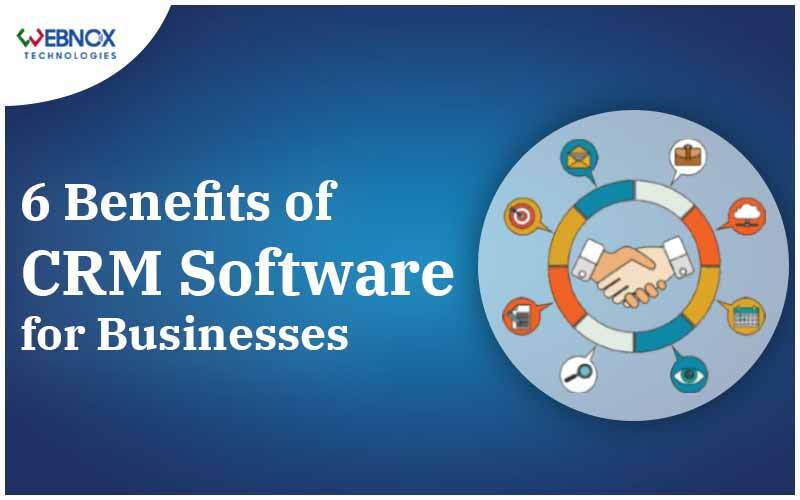The Future of CRM: 10 CRM Trends to Watch in 2024
Rathinakumar // 28-12-2023
Over the past few years, the significance of customer relationship management (CRM) systems has grown significantly, evolving into an indispensable tool for numerous businesses. The swift advancements in CRM technologies and strategies continue to revolutionize the dynamics of customer-business interactions. This article aims to delve into the emerging CRM trends projected for 2024, offering insights into the pivotal transformations that are reshaping the industry. By examining the main developments, we aim to illuminate the profound shifts and innovations that businesses can anticipate as they navigate the ever-changing landscape of customer relationship management.
Artificial Intelligence
Artificial Intelligence (AI) is reshaping the landscape for Customer Relationship Management (CRM) organizations and users across various domains, notably in sales, marketing, data management, voice interactions, and customer support.
In sales, AI serves as a game-changer by leveraging predictive analytics to analyze historical data, predict customer behaviours, and prioritize leads for a more focused sales effort.
In marketing, AI empowers CRM systems with intelligent insights, enabling marketers to analyze customer data, identify trends, and execute targeted campaigns with personalized content and optimized advertising strategies.
The role of AI in data management within CRM is crucial for CRM organizations, automating data enrichment processes, ensuring accuracy, and providing valuable insights for informed decision-making.
Voice assistants, integrated into CRM systems, enhance user experiences for CRM users by allowing natural language interactions, enabling sales representatives to perform tasks using voice commands.
As CRM organizations and users leverage AI, they gain a competitive edge through deeper insights, improved operational efficiency, and the delivery of personalized, responsive customer experiences. The ongoing evolution of technology suggests that the role of AI in CRM will continue to advance, further contributing to the success of CRM organizations and heightened satisfaction for CRM users.
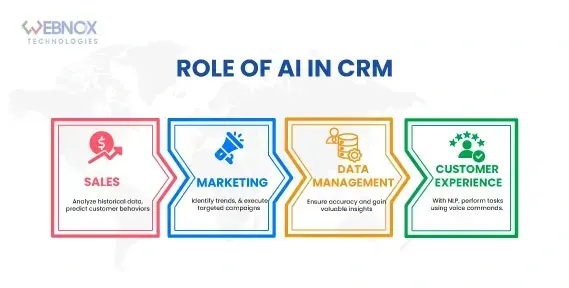
Automation and Chatbots
The paradigm of Customer Relationship Management (CRM) organizations is witnessing a significant transformation with the escalation of automation and AI-driven chatbots. This trend reflects a strategic shift towards operational efficiency and enhanced customer support for CRM organizations. The growing utilization of automation streamlines routine tasks within CRM software systems, optimizing workflows and freeing up human resources for more strategic endeavours. Simultaneously, AI-driven chatbots redefine customer interactions for CRM organizations by providing instant support, answering queries, and guiding users through processes. This dual approach not only boosts efficiency but also fosters a seamless and responsive customer experience, aligning CRM organizations with the contemporary landscape where automation and chatbots play pivotal roles in shaping customer interactions.
Customer Experience Focus
Customer Experience in CRM underscores an unwavering commitment of CRM organizations to delivering exceptional customer experiences. Centered on a holistic understanding of the customer journey, CRM organizations leverage CRM platforms to seamlessly integrate touchpoints, predict preferences, and optimize interactions. By analyzing customer data, these platforms enable personalized engagement, fostering satisfaction, loyalty, and advocacy for CRM organizations. This strategic approach ensures continuous monitoring and improvement, allowing CRM organizations to remain responsive to evolving customer expectations and cultivate positive brand experiences at every stage of the customer journey.
Omnichannel Experience
An emerging trend for CRM organizations in 2024, Omni-Channel communication represents a paradigm shift in customer interaction strategies. This trend involves the integration of diverse communication channels, including email, social media, and chat, directly into CRM platforms. CRM organizations embracing new trends recognize the significance of providing customers with seamless and interconnected experiences across multiple touchpoints. By combining these channels, CRM platforms facilitate a unified approach to customer interactions. This not only enhances convenience but also ensures a consistent and personalized engagement, reflecting the evolving landscape of CRM organizations towards more integrated and customer-centric solutions.
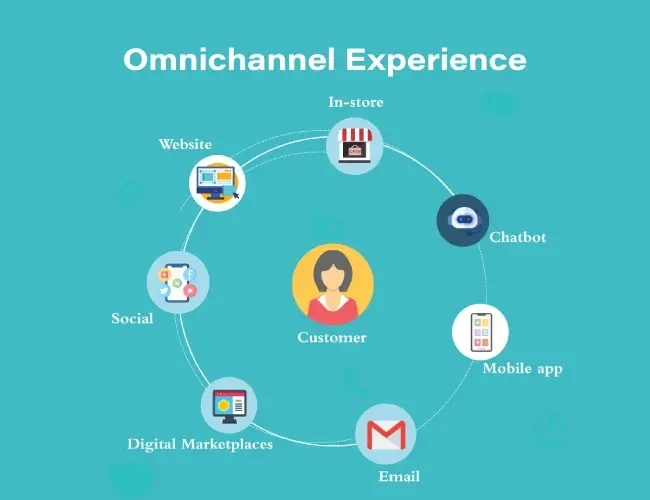
Mobile and Cloud CRM
In the evolving landscape of CRM organization trends, the integration of Mobile and Cloud CRM solutions stands out as a pivotal development. CRM organizations are increasingly adopting these trends to enhance accessibility and flexibility. Mobile CRM empowers users within CRM organizations to manage customer relationships on the go through smartphones and tablets, facilitating real-time interactions. Meanwhile, cloud CRM enables seamless data access and collaboration across diverse locations for CRM organizations. These trends in customer relationship management signify a shift towards more agile, scalable, and user-friendly solutions, reflecting a commitment by CRM organizations to meeting the dynamic demands of modern businesses in an interconnected and mobile-driven era.
Social CRM
This approach involves the ongoing integration of social media platforms into CRM systems for CRM organizations to monitor, engage, and analyze customer interactions comprehensively. Moreover, CRM organizations recognize the enduring significance of customer relationship management (CRM) strategies, with social CRM persisting as a cornerstone. By leveraging social media data, CRM organizations gain valuable insights into customer sentiments, preferences, and behaviours. Social CRM not only fosters real-time engagement but also enables personalized interactions, contributing to a deeper understanding of the customer journey. As a vital trend in CRM, integrating social media ensures that CRM organizations remain adaptive and responsive in the interconnected world of customer relationship management.
Self-Service CRM
Self-service CRM represents a progressive approach for CRM organizations, empowering customers to access and manage information independently. In this innovative system, clients within CRM organizations can seamlessly navigate through services, obtain insights, and address queries without direct assistance. This trend in customer relationship management aligns with the evolving expectations of modern consumers, providing a user-friendly interface for efficient self-assistance. By incorporating self-service functionalities into CRM platforms, CRM organizations not only enhance customer satisfaction but also streamline internal processes. This approach reflects a commitment by CRM organizations to fostering a more dynamic and accessible customer experience within the broader landscape of customer relationship management.
Data security and privacy compliance
Customer Relationship Software ensures robust data security and privacy compliance for CRM organizations. As CRM organizations leverage CRM systems to manage and analyze vast amounts of customer data, a stringent focus on safeguarding this information becomes imperative. Adhering to privacy regulations and implementing advanced security measures not only protects sensitive customer data but also builds trust within CRM organizations. With the growing privacy concern, CRM organizations that prioritize data security within CRM platforms not only mitigate risks of breaches but also demonstrate a commitment to ethical practices, fostering stronger customer relationships based on transparency and the assurance of confidential information protection.
Real-Time Analytics
Real-time analytics within Customer Relationship Management (CRM) introduces a transformative dimension to decision-making processes for CRM organizations. This advanced capability enables CRM organizations to instantaneously interpret and respond to dynamic data, providing valuable insights into customer behaviour. By leveraging real-time analytics within the CRM framework, CRM organizations can optimize strategies, personalize interactions, and address evolving customer needs promptly. This proactive approach enhances the overall customer relationship for CRM organizations by aligning products and services with individual preferences in real time. The integration of real-time analytics not only facilitates agile decision-making but also contributes to a more nuanced understanding of customer behaviour, fostering a responsive and customer-centric business approach.
CRM integration
CRM integration stands as a fundamental trend for CRM organizations, revolutionizing the way CRM organizations harness and leverage customer data. This strategic approach involves seamlessly incorporating Customer Relationship Management systems with various organizational functions for CRM organizations, creating a unified and interconnected ecosystem. The ongoing evolution in CRM trends underscores the importance of integration, allowing CRM organizations to streamline data flow across departments, enhance collaboration, and gain a comprehensive view of customer interactions. By breaking down silos and fostering cross-functional synergy, CRM integration not only optimizes processes but also contributes to a more holistic and responsive customer experience, making it an indispensable element in contemporary CRM strategies for CRM organizations.
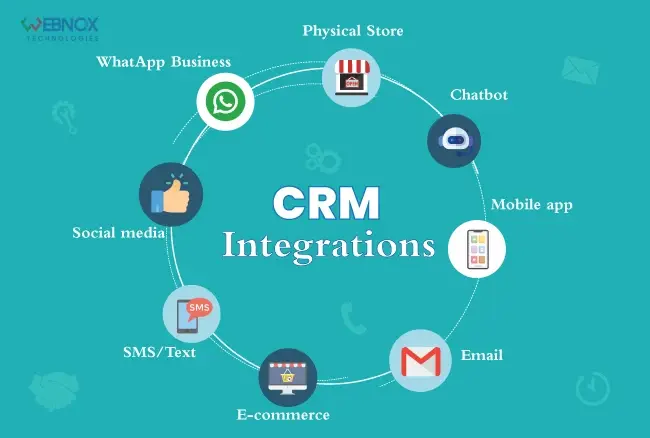
Conclusion
In 2024, CRM trends emerge as signals for transformative change for both CRM and business organizations alike. As we journey into this pivotal era of customer relations, businesses are urged to seize the opportunities presented by these trends. Embrace the power of AI-driven insights and integrate seamless Omni-Channel experiences to propel your organization toward sustained success. To remain competitive, adopt the future of CRM, exploring cutting-edge technologies and prioritizing customer-centric strategies. Now is the time for you to take the next decisive step, redefining the approach to building and nurturing customer relationships for a future of enduring connections and heightened competitiveness.


